Past Professional Development Opportunities
Research Experiences for Teachers Fellowship – Summer 2021
The Baltimore Ecosystem is hosted two teachers for its 2021 summer Research Experience for Teachers Fellowship. The Fellows worked with a mentor scientist to create a Data Nugget. Data Nuggets are free classr oom activities, co-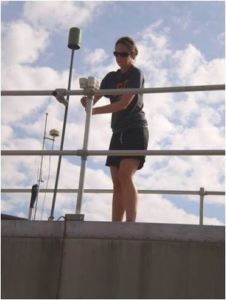 designed by scientists and teachers, to bring contemporary research and authentic data into the classroom.
designed by scientists and teachers, to bring contemporary research and authentic data into the classroom.
Summer 2021 Data Nugget Topics:
- Human Pharmaceuticals in freshwater streams, mentor Dr. Megan Fork
- Urban Forest Inventory of Baltimore trees, mentor TBD
For more information on Data Nuggets visit: http://datanuggets.org/
_______________________________________________________________________________________________________________________________
Baltimore City Schools 2020-2021 Earth-Chem Happy Hours
During the 2020-2021 school year, the Baltimore Ecosystem Study partnered with George Washington University and Baltimore City Schools to offer Earth-Chemistry Happy Hours to all Baltimore City high school chemistry teachers.
The Happy Hours took place most Thursdays from 4:00pm-4:45pm
Participants in the Happy Hours:
- Learned from topic specialists and Chemistry curriculum specialists.
- Discussed City Schools’ Chemistry distance learning activities.
- Asked questions and collaborate with your colleagues on distance teaching strategies.
- Received support on using distance learning platforms.
Baltimore City Schools 2020-2021 Chemistry Teacher Fellowship
During year four of the Integrating Chemistry and Earth science (ICE) project the Baltimore Ecosystem Study recruited its second cohort of Teacher Fellows. Fellows agreed to participate in our after school virtual learning program, assist our researchers with student and teacher data collection and commit to high fidelity implementation of the chemistry curriculum (particularly units 6 and 7).
Benefits from being a Teacher Fellow:
- Received an hourly rate of $30 for professional development participation
- Participated in monthly ICE after school meetings during the 20 20 20 21 school year (1 ½ hours per session)
- Tentative Fall Dates: September 24, October 15, November 19, December 17
- Spring Dates: TBD
- Received $200 for end of year submission of student data, artifacts, surveys, and interviews.
- Received support from ICE staff and City Schools while teaching the ICE lessons during the 2020-2021 school year.
- Participated in research about your experiences using the lessons (online assessments and interviews).
- Participated as part of a professional community with other teachers, scientists, and educators.
————————————————————————————————————————————————————————-
Watersheds, Runoff & Flooding in Baltimore, April 18, 2020, 9am-4pm
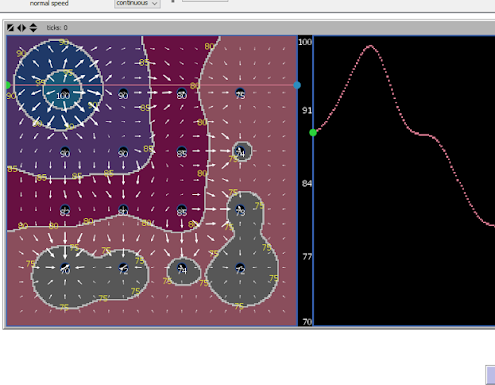
Earth, environmental and computer science teachers participated in a one day program to learn about the Comp Hydro curriculum, an innovative, hands-on curriculum that integrates investigations and computational modeling to learn about water in the local environment. The workshop was lead by educators and scientists from the Baltimore Ecosystem Study and the Cary Institute of Ecosystem Studies. Participants received a stipend for their participation and a Comp Hydro supply kit.
Workshop participants:
- Learned about pathways of surface water runoff, groundwater and flooding using physical and computational models
- Developed strategies for NGSS-aligned 3D teaching about real-world water phenomena
- science practices – modeling, investigating, data sense making
- disciplinary ideas in Earth and environmental science
- cross-cutting concepts – systems and scale
- Explored student thinking and learning about local flooding issues
- Practiced the lab and field exercises, data collection techniques and using computer models integral to the Comp Hydro curriculum
- Planned for implementing the curriculum in your classroom
————————————————————————————————————————————————————————-
Maryland’s Changing Hydrology Summer Workshop – July 17-20, 2017 8:30am-4pm daily
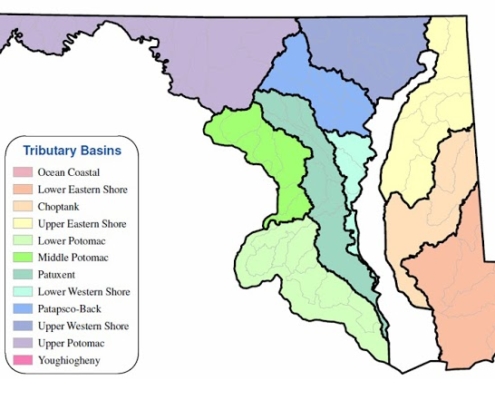 Baltimore Ecosystem Study educators and scientists explored the big ideas in watershed science in the urban ecosystems of Baltimore. Teachers learned about water flow, quality and stream biodiversity through inquiry-based projects in the field and classroom. Delved into pathways of student thinking and learning about environmental science. Explored mathematical modeling and computational thinking. Received curriculum materials and other teaching resources. Two MSDE CPD credits were provided to teachers completing the course.
Baltimore Ecosystem Study educators and scientists explored the big ideas in watershed science in the urban ecosystems of Baltimore. Teachers learned about water flow, quality and stream biodiversity through inquiry-based projects in the field and classroom. Delved into pathways of student thinking and learning about environmental science. Explored mathematical modeling and computational thinking. Received curriculum materials and other teaching resources. Two MSDE CPD credits were provided to teachers completing the course.
Pharmaceuticals in Streams with special guest, Dr. Emma Rosi – March 26, 2017
 The Baltimore Ecosystem Study hosted a one day workshop for middle and high school teachers on the topic of Pharmaceuticals in Streams. Renown ecologist, Dr. Emma Rosi joined with BES educators to bring an exciting, educational and innovative workshop to Baltimore. Participants delved into topics in environmental science including stream health, urban hydrology, and freshwater systems. We explored Dr. Rosi’s latest research highlighting pharmaceuticals found in streams in Baltimore.
The Baltimore Ecosystem Study hosted a one day workshop for middle and high school teachers on the topic of Pharmaceuticals in Streams. Renown ecologist, Dr. Emma Rosi joined with BES educators to bring an exciting, educational and innovative workshop to Baltimore. Participants delved into topics in environmental science including stream health, urban hydrology, and freshwater systems. We explored Dr. Rosi’s latest research highlighting pharmaceuticals found in streams in Baltimore.
Urban Tree Education Project
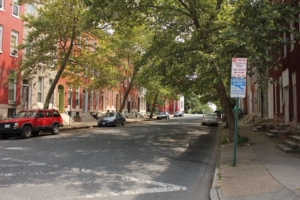 The Urban Tree Education Project (U-TEP) is a week-long professional development program for middle and high school teachers to increase teacher knowledge, understanding and skills for collecting long-term data on and teaching about trees as critical components of urban ecosystems. Course content includes:
The Urban Tree Education Project (U-TEP) is a week-long professional development program for middle and high school teachers to increase teacher knowledge, understanding and skills for collecting long-term data on and teaching about trees as critical components of urban ecosystems. Course content includes:
- Strategies for increasing comfort and confidence in using the schoolyard in your teaching
- Practice conducting a series of investigations including protocols on tree species composition, transpiration, decomposition, herbivory and phenology
- Data analysis using the i-Tree model
U-TEP is open to middle and high school teachers (elementary school teams of teachers will be considered) from the Baltimore region and across all disciplines. We strongly encourage teams of teachers from the same school to apply to the program. Baltimore City Public School teacher participants are eligible for AU credits. Participants from other school systems are eligible for a small stipend upon completion of the course.
Urban Ecosystem Teacher Institute
 Our Urban Ecosystem Teacher Institute brings together dedicated middle and high school teachers from the Baltimore Region together with BES educators and scientists in an exciting year long program. Teachers from all disciplines are welcome to join us as we delve into environmental and social science topics including: an exploration of the big ideas in environmental science in the urban ecosystems of Baltimore; instruction on carbon cycling and climate change, water flow and quality, biodiversity, and environmental history and justice through inquiry-based projects in the field and classroom; practice with inquiry and culturally relevant teaching; and a look at pathways of student thinking and learning about environmental science.
Our Urban Ecosystem Teacher Institute brings together dedicated middle and high school teachers from the Baltimore Region together with BES educators and scientists in an exciting year long program. Teachers from all disciplines are welcome to join us as we delve into environmental and social science topics including: an exploration of the big ideas in environmental science in the urban ecosystems of Baltimore; instruction on carbon cycling and climate change, water flow and quality, biodiversity, and environmental history and justice through inquiry-based projects in the field and classroom; practice with inquiry and culturally relevant teaching; and a look at pathways of student thinking and learning about environmental science.
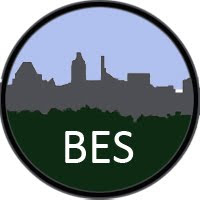

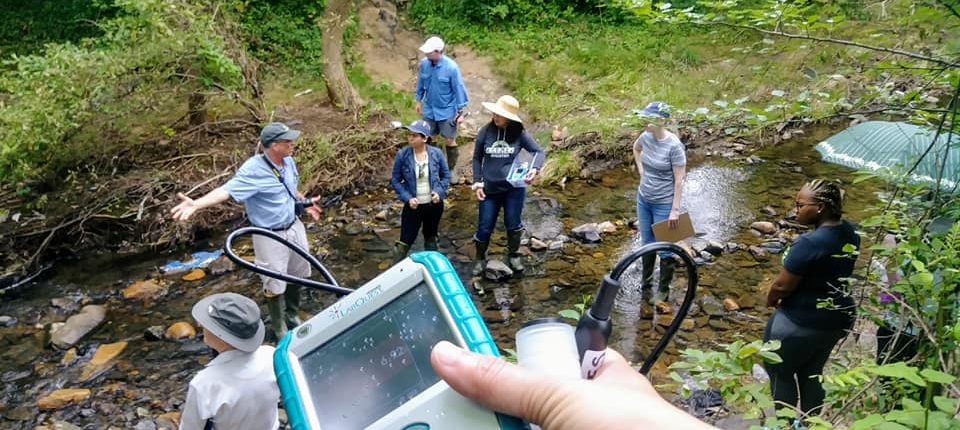



 designed by scientists and teachers, to bring contemporary research and authentic data into the classroom.
designed by scientists and teachers, to bring contemporary research and authentic data into the classroom.
 Baltimore Ecosystem Study educators and scientists explored the big ideas in watershed science in the urban ecosystems of Baltimore. Teachers learned about water flow, quality and stream biodiversity through inquiry-based projects in the field and classroom. Delved into pathways of student thinking and learning about environmental science. Explored mathematical modeling and computational thinking. Received curriculum materials and other teaching resources. Two MSDE CPD credits were provided to teachers completing the course.
Baltimore Ecosystem Study educators and scientists explored the big ideas in watershed science in the urban ecosystems of Baltimore. Teachers learned about water flow, quality and stream biodiversity through inquiry-based projects in the field and classroom. Delved into pathways of student thinking and learning about environmental science. Explored mathematical modeling and computational thinking. Received curriculum materials and other teaching resources. Two MSDE CPD credits were provided to teachers completing the course. The Baltimore Ecosystem Study hosted a one day workshop for middle and high school teachers on the topic of Pharmaceuticals in Streams. Renown ecologist, Dr. Emma Rosi joined with BES educators to bring an exciting, educational and innovative workshop to Baltimore. Participants delved into topics in environmental science including stream health, urban hydrology, and freshwater systems. We explored Dr. Rosi’s latest research highlighting pharmaceuticals found in streams in Baltimore.
The Baltimore Ecosystem Study hosted a one day workshop for middle and high school teachers on the topic of Pharmaceuticals in Streams. Renown ecologist, Dr. Emma Rosi joined with BES educators to bring an exciting, educational and innovative workshop to Baltimore. Participants delved into topics in environmental science including stream health, urban hydrology, and freshwater systems. We explored Dr. Rosi’s latest research highlighting pharmaceuticals found in streams in Baltimore. The Urban Tree Education Project (U-TEP) is a week-long professional development program for middle and high school teachers to increase teacher knowledge, understanding and skills for collecting long-term data on and teaching about trees as critical components of urban ecosystems. Course content includes:
The Urban Tree Education Project (U-TEP) is a week-long professional development program for middle and high school teachers to increase teacher knowledge, understanding and skills for collecting long-term data on and teaching about trees as critical components of urban ecosystems. Course content includes:

